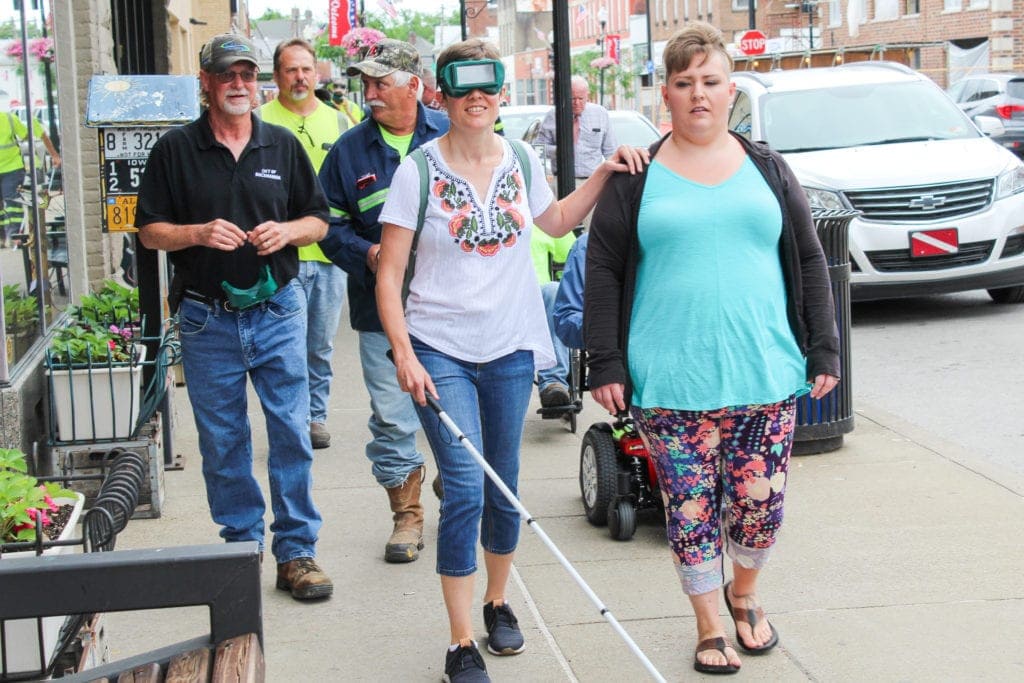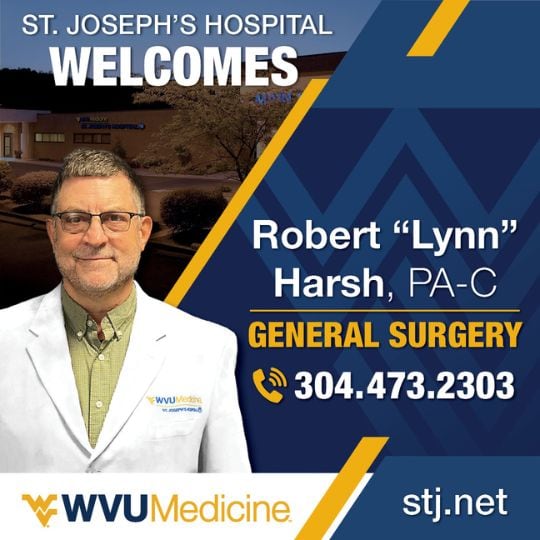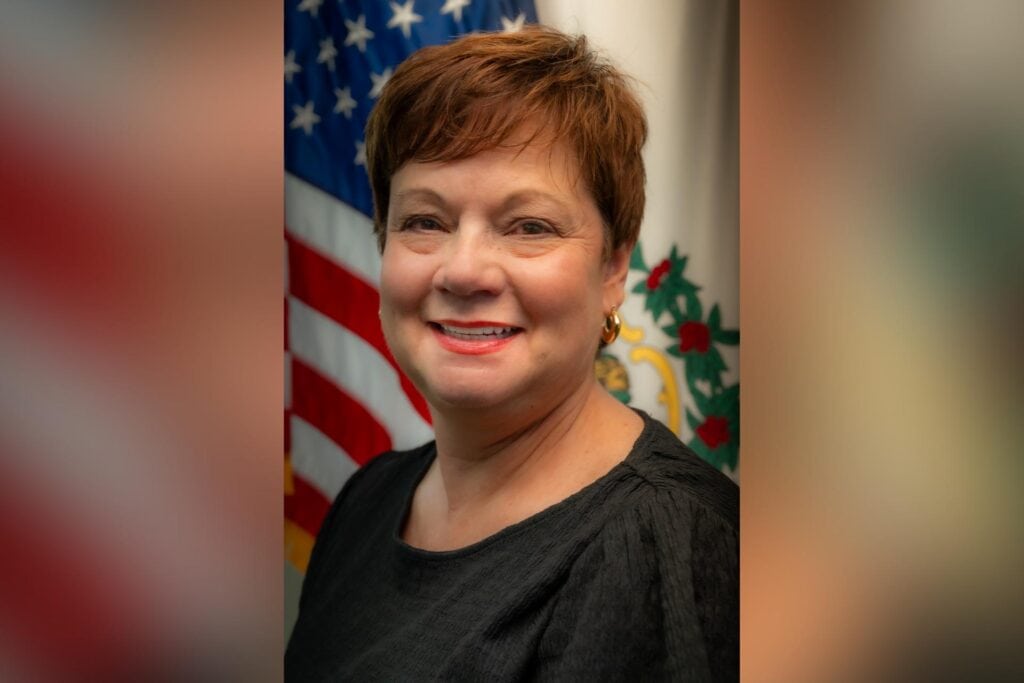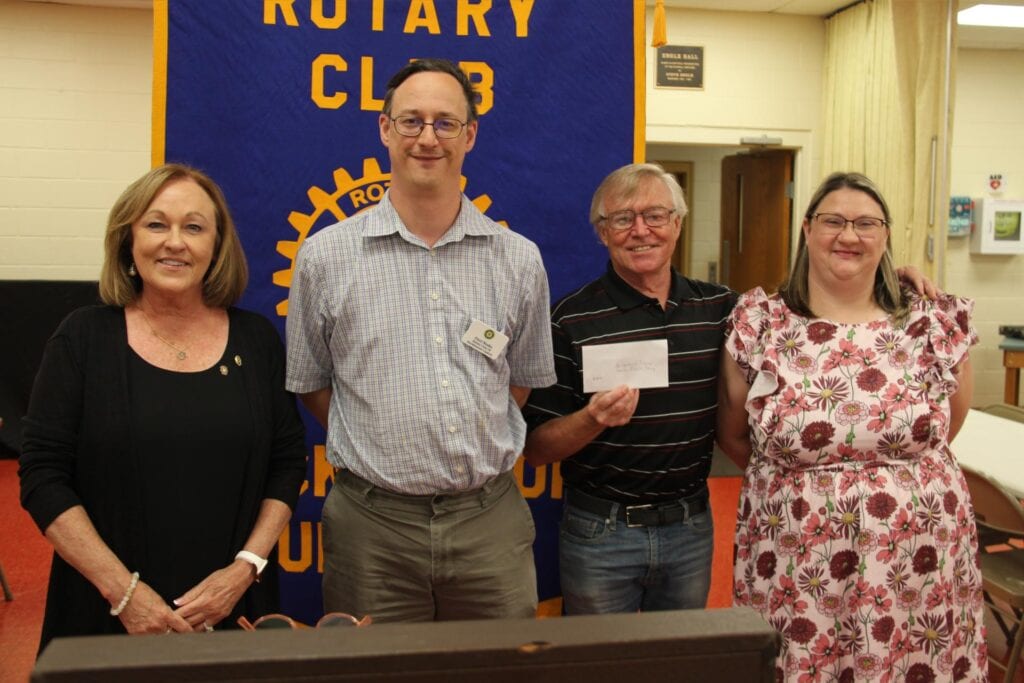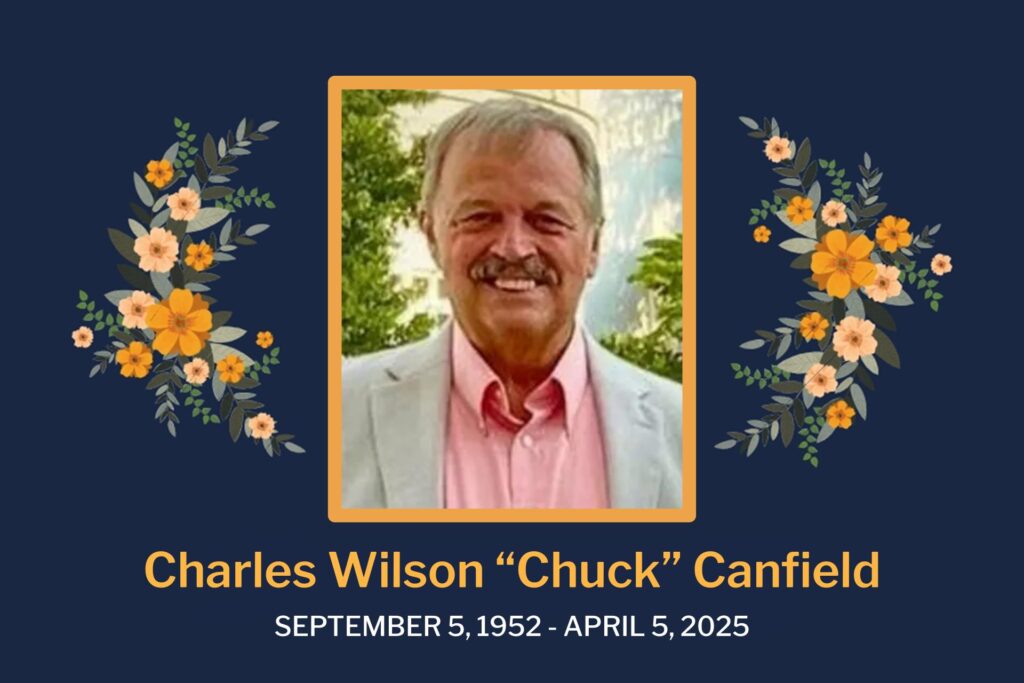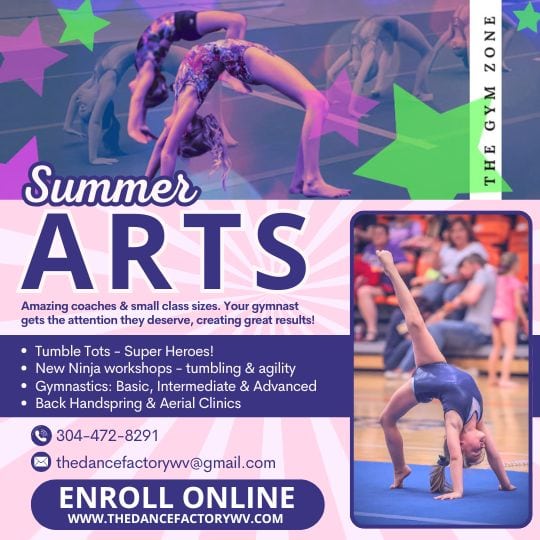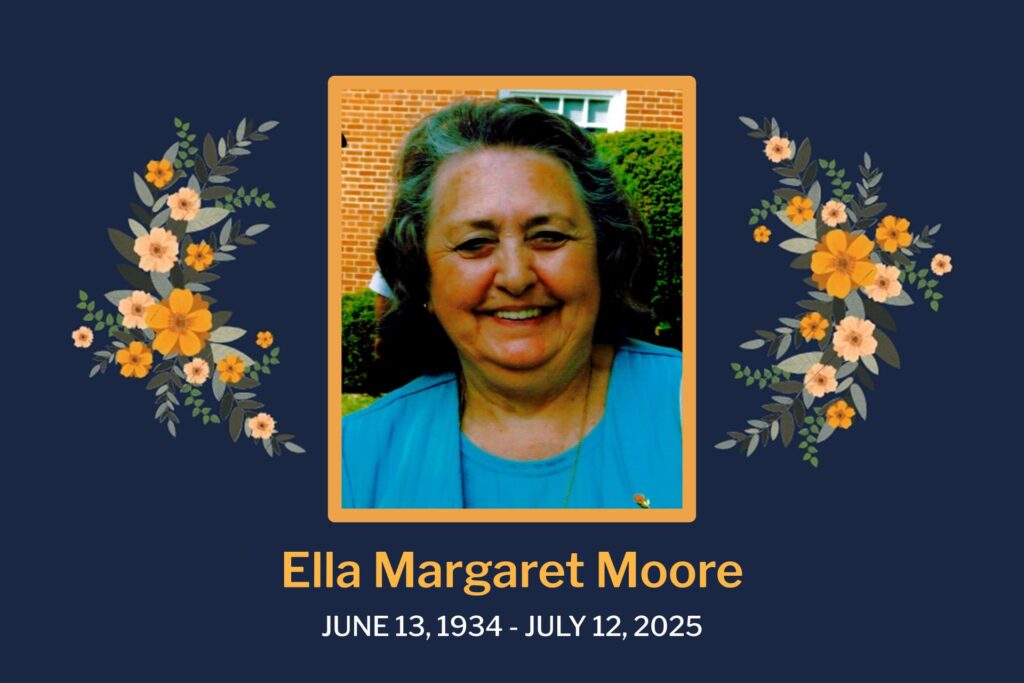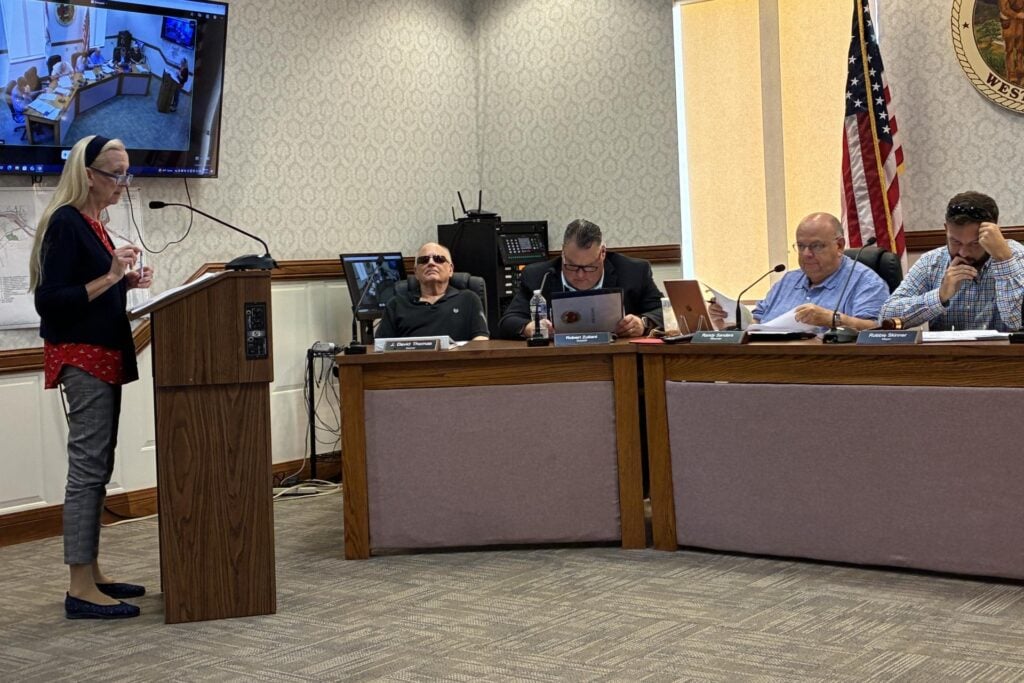BUCKHANNON – The City of Buckhannon recently asked people to take a walk – or ride – in the shoes of residents who sometimes have a difficult time getting around town.
On Monday, Buckhannon’s director of public works, Jerry Arnold, invited the community to learn about the importance of building and maintaining ADA-compliant facilities, i.e. those that adhere to the Americans with Disabilities Act.
The city invited Dr. Ronald Eck, professor of civil and environmental engineering at WVU, and disabled members of the community who are the most affected by non-ADA compliant parts of town to the “Walk a Mile in my Shoes” forum, which kicked off at 10 a.m. at the Public Safety Complex on Florida Street.
Eck said the first and foremost reason people should be in favor of ADA-compliant facilities is because it’s simply the right thing to do.

“Number one, I think it’s important because it’s the right thing to do,” Eck said. “I do these exercises we’re doing today around the country on a regular basis, and it’s interesting for me every time we’re out and about. As you’ll see today, [you’ll often see] a mom or a dad pushing a child on a stroller, so these programs benefit them as well … or delivery people with wheeled carts or, as a traveling instructor, I use wheeled carts to get around the country, and it’s tough.”
He said people often discover how hard it is to get around if or when they become temporarily disabled.
“Folks, from time to time, have been in this situation and get a temporary disability – you have an injury, surgery, knee replacement, hip replacement – and maybe for a short period of time, you’re unable to climb stairs, you have to use ramps and use elevators,” Eck said.
Eck mentioned that West Virginia has an 18.8 percent disability population, while the national average is 12 percent.
“Some people tell me sometimes it’s a new law, and it’s actually not a new law,” Eck said. “Next year will be the 30th anniversary. It is a Civil Rights Act … so, it’s different than what we’re used to dealing with in terms of the law, but it’s intended to provide equal opportunity for individuals with disabilities, so they’re not excluded, as the mayor put it.”
The Americans with Disabilities Act is a civil rights act that passed in 1990 and protects Americans from discrimination based on disability.
Eck said Buckhannon is ahead of the curve when it comes to making sidewalks ADA-compliant.
“I think everybody benefits from programs, and we should have accessible features,” Eck said, “and so I commend you all for your efforts and for being a kind of a leader for West Virginia in this area.”

Arnold said the City of Buckhannon has repaired or replaced 8.2 miles or 43 percent of sidewalks in a five-year period, and the city, along with the West Virginia Department of Highways, has upgraded 153 or 56 percent of all curb ramps in order to make it easier for everyone to get around.
Community members Christina Romine, BJ Samples and Keith Wolverton said they see the effort the city is making in helping them navigate Buckhannon, but there is always room for improvement.
“I’m impressed,” Samples said. “You guys have really done a lot of work, and it’s very smooth.”
Two areas Samples said could be improved are a ramp on Main Street near Sweet-A-Licious and the sidewalks along Kanawha Street by First Community Bank.
“You kind of have to be in the road driving up through there because the sidewalks don’t have ramps on them, so it’s a step up and then step down on the other side,” Samples said of the latter.
Romine said one problem she usually has is crossing the street safely.
“My biggest problem is sidewalk areas where they’re broken and have holes because she (her service dog) will try to avoid them, but she doesn’t like to step off the sidewalk unless she has to because the other problem I have is, nobody stops; they do not know pedestrians have the right away,” Romine said.
She said the problem isn’t always typical busy streets.
“I’ve had close calls, and it’s not just intersections,” Romine said. “Car washes, restaurants, anything, they’ll go right in front of you, and they don’t have that concept.”
Wolverton said it can be difficult to enter stores on Main Street.
“Maneuvering through Buckhannon is really great,” Wolverton said. “Our sidewalks are really wide; I can park my scooter. Fortunately, I can still maneuver on crutches so I park my vehicle out front and can go into stores, but I can’t imagine when I get older and I get worse. I may not be able to maneuver even a chair like mine through more than half the businesses in town.”
City councilman David Thomas said when he lost his sight, it was important to him to keep his independence.
“I think the thing that was most important to me was how to keep a good part of my independence,” Thomas said. “I think that’s a challenge that those of us who have these challenges, we obviously get help from friends and other individuals as always, and that is important.
“I obviously can’t drive a car; I have no vision at all. I’ve been totally blind for about 26 or 27 years. But I had difficulty vision-wise for over 60 years because of what happened to me when I was younger, and I made a commitment to myself to really try to do as many things as I could without assistance. That’s just something that was important.”
He said Buckhannon and Wesleyan are great places to be for people who have more difficulty getting around.
“I think we live in a great community, and I think this has a lot to do with that,” Thomas said. “I think Wesleyan College was one of the best institutions in the state, as far as looking at ADA.”
An attendee of the event, Ron Pugh, said he never thought he would need to utilize ADA upgrades.
“Several years ago, when I was on city council, Jerry Henderson and myself were asked to chair a survey and see what we could do about the ADA problems in Buckhannon, and we did that and [I was] never, ever thinking that one day I was going to be in the condition to utilize these improvements you made,” Pugh said. “I never thought I would have to use a cane or a walker or scooter, but here I am today having to do that stuff and what you’ve done, Jerry (Arnold), and what the city has done is truly astonishing.”

After the informative part of the event, Arnold invited everyone outside, and participants were given the choice of wearing goggles that obscured vision or using a wheelchair to see what it is like to maneuver Buckhannon in those circumstances.
“I think there are communities that talk the talk, and there are communities that also walk the walk,” Mayor David McCauley said. “It’s really easy to come out and say you’re going to be inclusive, and then not take action about it. When we collaborate with the West Virginia Department of Transportation and realize ADA intersect points being improved in our downtown area, that’s not just talking … That’s making a life altering change in a positive way for a lot of folks.”
